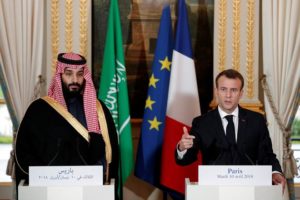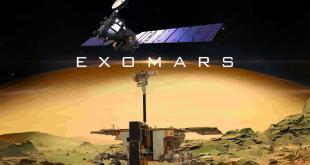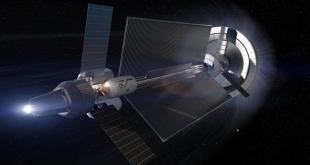
The Kingdom of Saudi Arabia and France have entered into an executive programme space agreement signed in France during the visit to Paris by Prince Mohammed bin Salman al Saud, the Crown Prince of Saudi Arabia.
The executive programme agreement was signed by Prince Turki Bin Saud Bin Mohammed Al Saud, President of the King Abdulaziz City for Science and Technology (KACST) in Saudi Arabia, and Jean-Yves Le Gall, President of the French national Space agency, Centre National d’etudes Spatiales (CNES), on 10 April 2018 in Paris.
According to a CNES statement, “This new framework agreement will allow CNES and KACST to exchange data, know-how and personnel. Joint research activities and projects will also be developed.”
“To coordinate these activities, a yearly Assembly will be held alternately in France and Saudi Arabia to promote this new partnership and identify priority areas within its remit. The term of the Executive Programme is five years,” the CNES statement added.
The executive programme agenda includes remote sensing, space and atmospheric sciences, microsatellite and space technology development, space regulations and norms, and satellite and near-space operations.The agreement is the latest among other agreements with France, to include the United Arab Emirates, India, and South Korea.
It also comes as France seems to have backed off its push to persuade Saudi Arabia to purchase French-built reconnaissance satellites. French government ministers and executives from companies such as Airbus Defence and Space and Thales Alenia Space have been frequent visitors to Riyadh trying to sell a variant of the Pleiades high-resolution imaging satellite, with systems already sold to Morocco and the United Arab Emirates. At one point, it was reported that Saudi Arabia was looking at purchasing up to eight satellites, and it seemed that French companies were the favoured bidders at the expense of American companies such as Orbital ATK.
All this was during the administration of President Barack Obama in Washington, whose administration was seen as at odds with the interests of a number of Gulf Arab states at the time. With the election of President Donald J. Trump, however, Gulf Arab countries such as the UAE and Saudi Arabia now view Washington as the partner of choice, especially when it comes to countering Iranian influence in the Middle East. As a result, American satellite manufacturers such as Lockheed Martin, Boeing, and the aforementioned Orbital ATK, are back in favour, seemingly at the expense of French companies, and the visit to Riyadh in May 2017 by President Trump suggests that high-resolution Earth observation satellites, among other space systems, were included in an arms deal thought to be worth tens of billions of dollars.
The executive programme agreement could be a consolation for France, however, since no new contracts for satellites have been signed since May 2017. Sweeping political changes in Riyadh as a result of Prince Mohammed bin Salman’s political ascendency, bureaucratic turf fights and competing requirement definitions, as well as ongoing Saudi military operations in Yemen have likely delayed Saudi decision making on the satellite issue. Furthermore, given the tenacity and determination of the French government and industry executives, as well as the speed at which geopolitical change can occur, it is unwise to rule out the possibility of Saudi Arabia awarding satellite contracts to both U.S. and French companies.
 SpaceWatch.Global An independent perspective on space
SpaceWatch.Global An independent perspective on space




